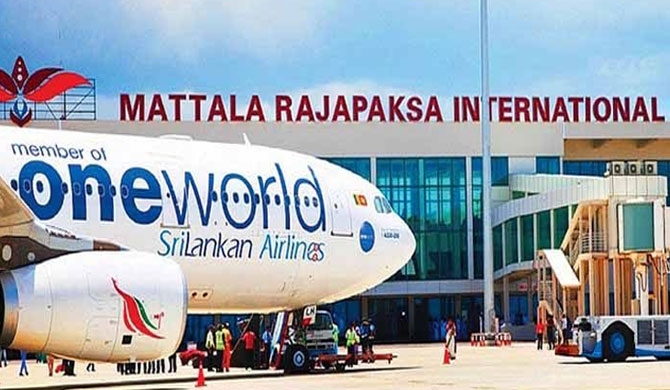The bidding process for Public-Private Partnership (PPP) investment opportunities at the Mattala Rajapaksa International Airport (MRIA) concluded last week, with the participation of 19 potential investors and strategic entrepreneurs, according to Airport and Aviation Services Sri Lanka (AASL).
Speaking to The Sunday Morning Business, AASL Chairman Major General (Retd) G.A. Chandrasiri revealed that significant interest had been received from interested investors and strategic entrepreneurs after Expressions of Interest (EOIs) had been called earlier this year.
Accordingly, he shared that 19 local and international investors had taken part in the bidding process that had been concluded last week.
He stated: “About 19 local and international companies took part in the bidding process on Monday (19). I think this process will be successful. We are hopeful that we will receive an attractive offer.”
He further stated that the received bids were currently being evaluated and that the final decision would be made within a month’s time.
On 8 January, the Cabinet of Ministers granted approval to the proposal presented by Minister of Ports, Shipping, and Aviation Nimal Siripala de Silva calling for EOIs from investors interested in engaging in business activities using the facilities at MRIA.
Speaking to The Sunday Morning Business previously, Chandrasiri disclosed that proposals had been received from investors who had expressed interest in establishing an aircraft dismantling business and a Maintenance, Repair, and Overhaul (MRO) facility at the MRIA.
The AASL’s main objective is to leverage the facilities and assets of the Mattala Airport to create PPP investment opportunities. These opportunities aim to attract investors and entrepreneurs involved in both direct and indirect aviation-related ventures, thereby facilitating aeronautical and non-aeronautical businesses at the airport.
Since its inception, the MRIA has been plagued by controversy and allegations of corruption. These controversies relating to the construction of the MRIA and its subsequent failure to generate revenue have resulted in it being labelled a white elephant which is an unnecessary burden on the State coffers. Consequently, groups within the present and the previous regime have actively pushed for the privatisation of the MRIA.


